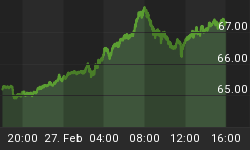In the Eurozone, Germany may be feeling like Atlas, the Titan from Greek mythology, bearing the burden of the peripheral nations. While many countries outside "core" Europe continue to struggle with weak economies and exploding sovereign debt, conditions in Germany could not be more different.
Take unemployment rates as an example, where wide divergences can be seen among individual countries. November's numbers for Ireland and Spain stand at an alarming 13.9% and 20.6% (respectively), while Germany's figures hit a post-reunification low of 6.7%.
The euro wasn't supposed to function like this. Rather, the monetary union and common currency was expected to promote balanced and mutually beneficial growth.
To date, the ECB and EU (with assistance from the IMF) have attempted to protect peripheral country bondholders -- including programs ranging from the gigantic USD 750 billion European Financial Stability Facility (EFSF) to the Securities Markets Programme (SMP). Yet these approaches are simply short-term patches targeting liquidity and not the longer-term solvency of troubled nations.
Where to from here for Euroland and the euro?
To read more: please click the following safe link to this month's ETFocus written by Tyler Mordy.
http://www.safehaven.com/pdf/mordy_2011_01_24.pdf
Kind regards,















